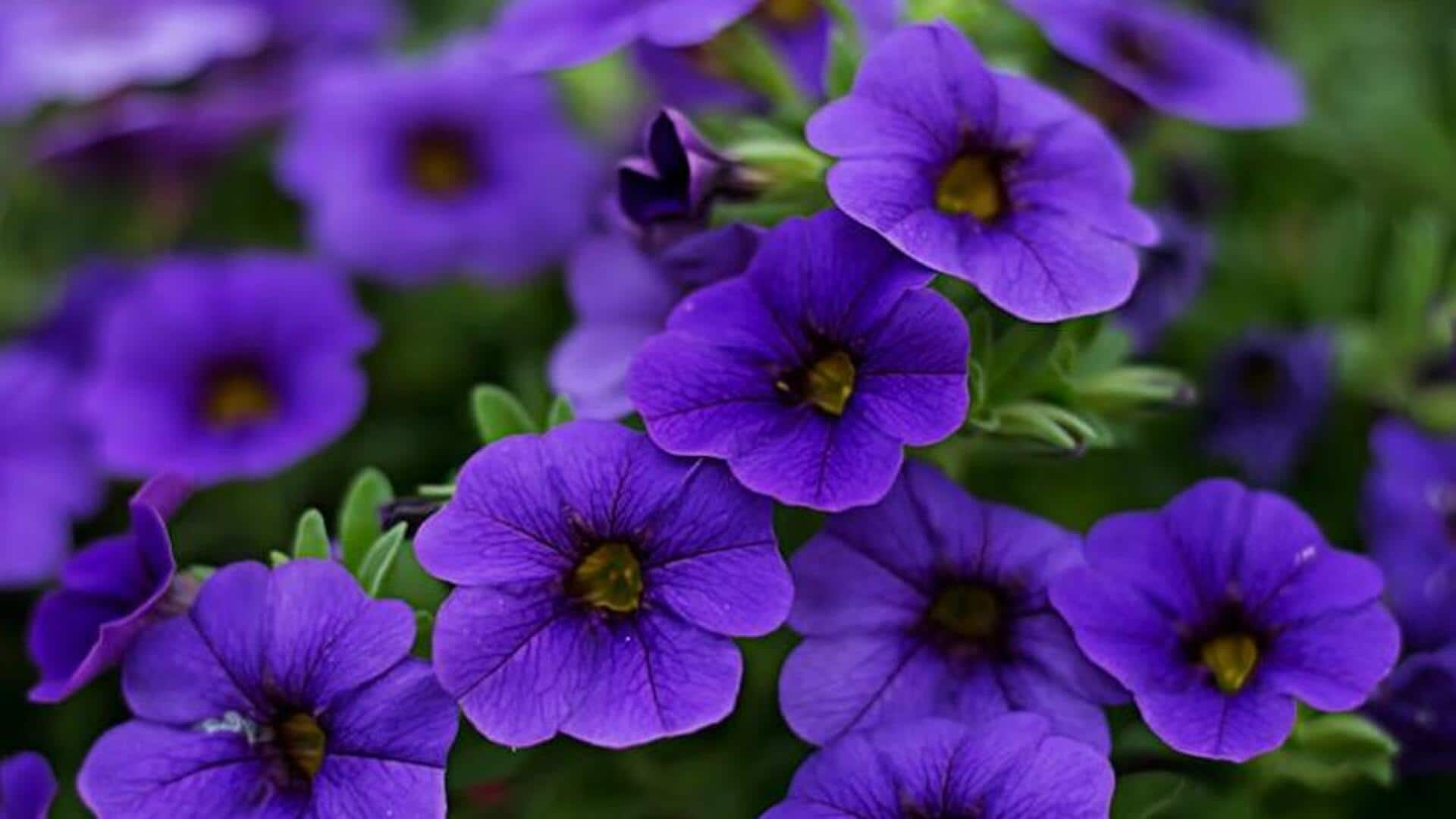
Perfectly pruned petunias: 5 flower flourishing secrets
What's the story
Petunias are a colorful and beloved option for gardeners seeking to beautify their outdoor spaces with a burst of floral charm. Renowned for their diverse color palette and low-maintenance appeal, petunias can thrive with proper care and cultivation practices. This article explores five key tips for caring for petunias, guaranteeing they stay healthy and radiant throughout their blooming season.
Location
Selecting the right spot
Petunias need a location that gets a minimum of six hours of direct sunlight each day. Selecting a location that provides this much light is essential for their growth and flower production. If they don't get enough light, petunias will have fewer flowers and get leggy. Make sure the planting area drains well so water doesn't stand around the roots and cause root rot.
Hydration
Watering wisely
Petunias benefit from careful watering; they prefer to stay damp but not soaked. Water them thoroughly in the early morning, then let the soil dry out a bit before watering again. This promotes deep root growth and helps them resist drought. Don't water too much, or you could cause fungal diseases. Keep checking the soil to ensure it doesn't get too dry.
Nutrition
Fertilizing for growth
Feeding petunias with a balanced fertilizer every four weeks will supercharge their growth and blooming power. A 10-10-10 or 15-30-15 fertilizer is perfect, offering an equal balance of nitrogen, phosphorus, and potassium or a higher phosphorus content for blooming plants, respectively. Begin with a slow-release fertilizer at planting time, ensuring they get a constant supply of nutrients right from the start.
Maintenance
Pruning for more blooms
Regularly pruning or deadheading spent flowers is beneficial for petunias. It encourages them to produce more blooms and prevents them from going into seed production mode, which can reduce flowering over time. By removing faded flowers along with a bit of stem (just below one set of leaves), you stimulate new growth and flower production. This practice keeps your petunia plants looking fresh and full throughout the season.
Protection
Pest control strategies
Although petunias are pretty resilient, neglect can make them vulnerable to pests like aphids and slugs. Regularly checking your plants for any signs of pests and acting promptly is key to stopping infestations before they spread or cause serious harm. And, you don't need to reach for harsh chemicals - natural solutions like neem oil sprays or diatomaceous earth work wonders against these common critters.